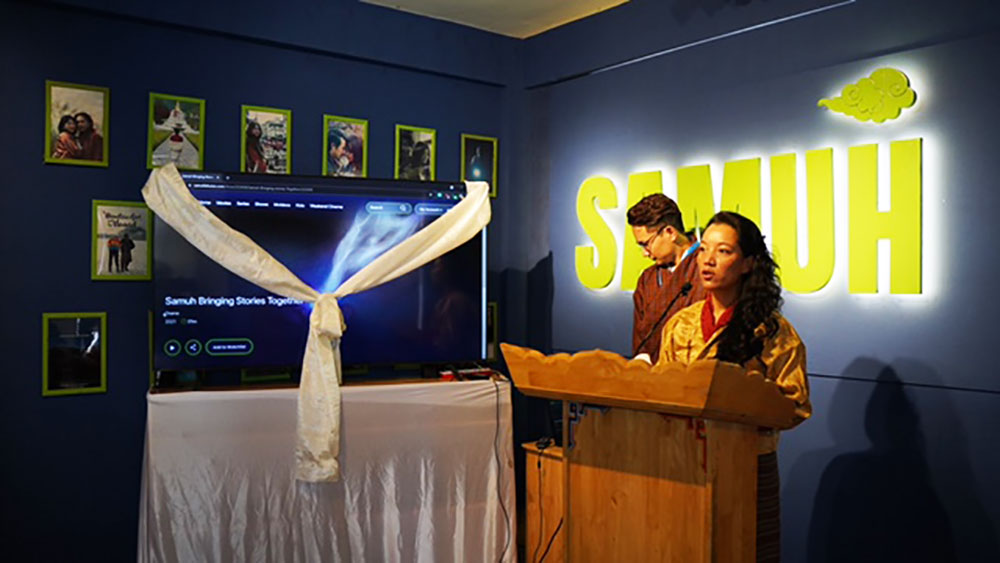Kinley Wangchuk
Finance Minister Namgay Tshering formally launched Samuh, the first OTT platform in Bhutan, which went live on June 29, 2021.
Samuh provides video-streaming service to Bhutanese in the country and abroad, with a wide range of original, licensed and curated Bhutanese contents.
“Samuh is not just a project. It is inspired by His Majesty’s vision for technologically-driven Bhutan and innovation,” said Nyema Zam, the Founder and CEO of Samuh.
“The Bhutanese Film Industry is over two decades old and has played a critical role in the preservation of language, culture and heritage. However, lack of theatres and distribution system has been one of the major obstacles and this has limited the number of films and the growth of the sector,” added Nyema Zam
She added: “It also provides a state-of-the-art distribution platform to local filmmakers to enable monetisation of their creative assets,” said Nyema Zam
Besides promoting and developing the creative industries in Bhutan through creation of employment and skilling programmes in the creative space, Samuh also supports development of the arts and independent films in Bhutan.
Samuh’s contents range includes entertainment and infotainment content spanning across different sectors such as original films, original web series, documentaries, music videos, shows and animation programs for children, among others.
Samuh’s Season 1 (2021) Original content plan comprises of twelve feature films, six short films, five series, four shows, 25 music videos, and two animation series.
Samuh also offers subscription plans through which users can have access to all the contents and pay-per-view for its weekend Cinema service where the recently produced movies will be screened.
Samuh is available worldwide and since our web platform went LIVE on 29th June, more than 10,000 Bhutanese from 60 countries have registered for Samuh service.
Founded in 2020, Samuh OTT is owned by Samuh Mediatech, Bhutan’s first media-tech start-up.
Bank of Bhutan through the National Credit Guarantee Scheme (NCGS) financed the project.
The project cost Nu 65 million.
Edited by Jigme Wangchuk


